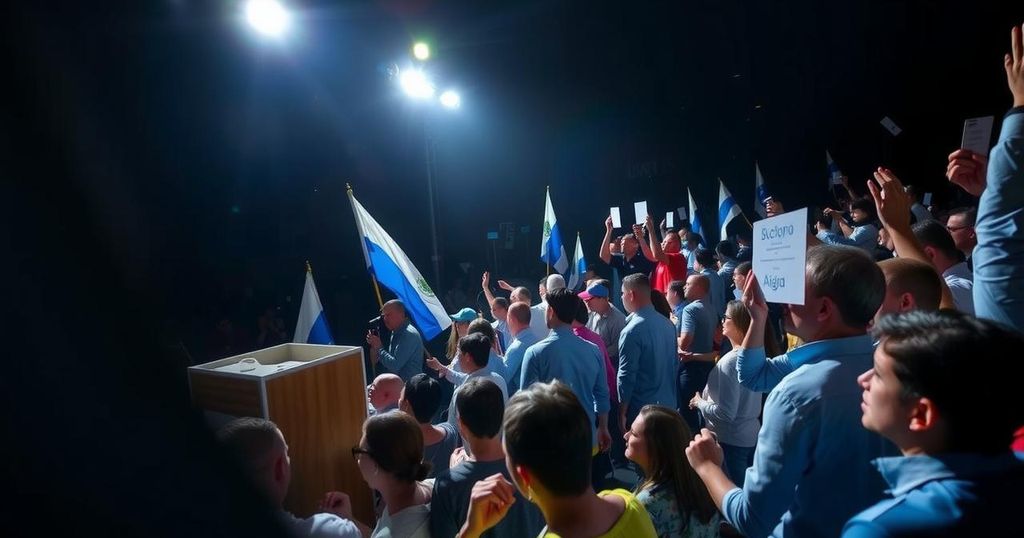Uruguay’s Presidential Runoff: A Close Contest Amid Political Uncertainty

Uruguay’s presidential runoff features Álvaro Delgado of the National Party against Yamandú Orsi of the Broad Front, with both candidates addressing the urgent issues of crime and economic stability. The previous election yielded a divided outcome, leading to this critical final vote that has drawn concern over rising crime rates and the administration’s effectiveness since 2019’s shift in power. Voter indecision remains high, indicative of the political climate’s overall lethargy.
Uruguay has entered a gripping final phase of its presidential election, with voters participating in a second round to decide between Álvaro Delgado, representing the incumbent conservative party, and Yamandú Orsi of the leftist Broad Front coalition. The previous election round saw the Broad Front receiving 44% of the votes, while Delgado’s National Party garnered only 27%, supplemented by the conservative Colorado Party, who collectively contributed 20%. This runoff emerges as a critical juncture for a nation that has long navigated a stable political landscape.
The election pits Delgado against Orsi, both of whom have been addressing the rising concerns of crime, a significant shift given Uruguay’s image as one of South America’s safest countries. Delgado proposes stringent law enforcement measures, including the construction of new prisons, while Orsi endorses a community-focused crime prevention strategy. This dynamic showcases a divide in approaches to governance and public safety.
Error-free governance and economic stability are on the ballot, with many citizens considering the election as a referendum on the outgoing President Luis Lacalle Pou’s policies, who enjoys a favorable approval rating and forecasted economic growth of 3.2%. Delgado, an experienced politician, aims to build upon Pou’s legacy, promoting pro-business stances and even exploring a trade deal with China, a move that has generated controversy.
Orsi, a prominent figure in the left coalition and a former mayor, seeks to reinvigorate the Broad Front’s legacy while promising tax reforms and social security adjustments that won’t radically disturb fiscal balancing, underscoring his moderate stance. Despite their differing philosophies, both candidates are navigating an uncertain electorate, with significant portions of voters still undecided as the election draws to a close.
The electoral climate lacks the populist fervor observed in other regions, offering instead a more subdued but steady engagement with political matters. Observers suggest that this situation speaks volumes about Uruguay’s resilient democratic framework, with past leaders, including José “Pepe” Mujica, emphasizing the importance of compromise in governance.
This election exemplifies a significant moment for Uruguay, illustrating not only the contest between two political forces but also the broader challenges and opportunities facing the nation as it contemplates its future direction.
Uruguay’s political landscape has historically been characterized by stability and moderate governance. The upcoming presidential election follows a period marked by the Broad Front coalition’s leadership, which introduced several progressive reforms from 2004 until their defeat in 2019. The recent first-round elections revealed a divided electorate, necessitating a runoff to determine the presidency between conservative and leftist candidates. Citizens are now tasked with choosing between continuity and change in light of economic conditions and increasing social unrest, particularly regarding crime.
As Uruguay approaches the conclusion of its tightly contested presidential runoff, the election underscores key issues such as crime, economic stability, and governance. With both candidates advocating differing visions for the future, the electorate faces a pivotal choice that extends beyond mere party affiliation, reflecting the complexities and priorities of a nation at a crossroads. The outcome will likely reverberate across Uruguay’s political landscape for years to come.
Original Source: www.voanews.com








